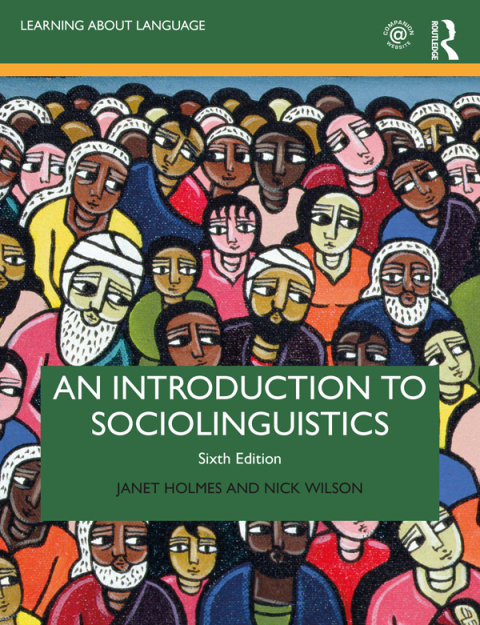Description
Efnisyfirlit
- Contents at a Glance
- Table of Contents
- Introduction
- About This Book
- Conventions Used in This Book
- Sociology is Controversial: Brace Yourself!
- How This Book Is Organised
- Icons Used In This Book
- Where To Go From Here
- Part 1: The Basic Basics
- Chapter 1: Sociology: Getting Your Head around It
- Understanding Sociology
- Seeing the World as a Sociologist
- Understanding Differences Among People and Groups
- Social Organisation
- Sociology and Your Life
- Sociology For Dummies, for Dummies
- Chapter 2: What Is Sociology, and Why Should I Care?
- Figuring Out What Sociology Is
- Discovering Where Sociology Is ‘Done’
- Recognising How Sociology Affects Your Life and Your World
- Chapter 3: Making It Up As They Went Along: The History of Sociology
- So . . . Who Cares about History?
- Thinking about Society before There Was Sociology
- The Development of ‘Sociology’
- Sociology’s Power Trio
- Sociology in the 20th Century
- Sociology Today
- Chapter 4: Research Methods: Because You Can’t Put Society in a Test Tube
- The Steps of Sociological Research
- Choosing a Method
- Analyzing Analytical Tools
- Preparing For Potential Pitfalls
- Part 2: Seeing Society Like a Sociologist
- Chapter 5: Socialisation: What is ‘Culture,’ and Where Can I Get Some?
- Understanding What Culture Is – and Isn’t
- Studying Culture: Makin’ It and Takin’ It
- Paddling the ‘Mainstream’
- Socialisation: Where You Connect in Culture
- Culture Paradox: Pulling Us Together and Pushing Us Apart
- Chapter 6: Microsociology: If Life Is a Game, What Are the Rules?
- Within You and Without You: The Paradox of Society
- Rational – and Irrational – Choices
- Symbolic Interactionism: Life is a Stage
- Part 3: Equality and Inequality in Our Diverse World
- Chapter 7: Caught in the Web: The Power of Networks
- The Global Village: Seeing Society as a Network
- The Strength of Weak Ties
- Insights from Network Analysis
- Chapter 8: Social Stratification: We’re All Equal, But Some of Us Are More Equal Than Others
- Excavating the Social Strata
- The Many Means of Inequality
- Comparing inequality internationally
- Chapter 9: Gender and Ethnicity: I Know My Race, But Where’s the Finish Line?
- Bias and Discrimination: A Two-Sided Coin
- Race and Ethnicity
- Sex and Gender
- Race, Ethnicity, Sex, and Gender: Why They Still Matter
- Chapter 10: Ways of Belonging: Citizenship and National Identities
- Stating the Obvious: The Emergence of the State
- ‘What is a Nation?’
- When Nationalism Turns Ugly
- Addressing Concepts of Citizenship
- Multicultural Citizenship
- Chapter 11: Getting Religion: Faith in the Modern World
- Understanding Religion in History
- Religion in Theory . . . and in Practice
- Faith and Freedom in the World Today
- Chapter 12: Crime and Deviance: I Fought the Law . . . and I Won!
- All Crime is Deviance, but Not All Deviance is a Crime
- Criminals in Society
- The Social Construction of Crime
- Becoming Deviant
- Fighting Crime
- Part 4: All Together Now: The Ins and Outs of Social Organisation
- Chapter 13: Corporate Culture: The Study of Organisations (and Disorganisations)
- The Corporate Conundrum: Making a Profit Isn’t as Easy – or as Simple – as it Sounds
- Weber’s Big Idea About Organisations
- Rational Systems: Bureaucracy at its Purest
- Natural Systems: We’re Only Human
- Open Systems: The Whole Wide World of Work
- Chapter 14: The Rules of the Game: Social Movements and Political Sociology
- State and Government: Governing and Being Governed
- Sharing (or Not Sharing) Power in Society
- Social Movements: Working for Change
- Chapter 15: Urban Sociology and Demographics: (Ain’t No) Love in the Heart of the City
- Sociology in the City
- Changing Neighbourhoods
- Life in the City: Perils and Promise
- Part 5: Sociology and Your Life
- Chapter 16: The Family and the Life Course
- The Social Construction of Age
- Running the Course of Life
- Taking Care: Health Care and Society
- Families Past and Present
- Chapter 17: Future Passed: Understanding Social Change
- Why Societies Change
- What Comes Next?
- Sociology in the Future
- Part 6: The Part of Tens
- Chapter 18: Ten Sociology Books That Don’t Feel Like Homework
- Randall Collins: Sociological Insight
- William Foote Whyte: Street Corner Society
- Laud Humphreys: Tea Room Trade
- Erving Goffman: The Presentation of Self in Everyday Life
- Stan Cohen: Folk Devils and Moral Panics
- Arlie Hochschild: The Second Shift
- Viviana Zelizer: Pricing the Priceless Child
- Michael Schwalbe: Unlocking the Iron Cage
- Tariq Modood: Not Easy Being British
- Katherine Newman: No Shame in My Game
- Chapter 19: Ten Ways to Use Sociological Insight in Everyday Life
- Think Critically About Claims That ‘ Research Proves’ One Thing or Another
- Beware of Unprovable Assertions About Society
- Understand Barriers to Effective Communication
- Know the Difference Between the Identity You Choose and the Identities Others Choose For You
- Understanding Art: If It Seems Confusing, That’s Exactly the Point
- Be Clever About Relationship-Building
- Changing Society: Be Optimistic, But Keep Your Expectations Reasonable
- Learn How to Mobilise a Social Movement
- Run Your Company Effectively
- Understand How We Can All Be Different, Yet All Be the Same
- Chapter 20: Ten Myths About Society Busted by Sociology
- With Hard Work and Determination, Anyone Can Get What They Deserve
- Our Actions Reflect Our Values
- We’re Being Brainwashed by the Media
- Understanding Society is Just a Matter of ‘Common Sense’
- Race Doesn’t Matter Any More
- In Time, Immigrant Families Will Assimilate and Adopt a New Culture
- Bureaucracy is Dehumanizing
- People Who Make Bad Choices Are Just Getting the Wrong Messages
- Society Stops Us Being Our ‘True Selves’
- A Perfect Society Can Exist
- Index






Reviews
There are no reviews yet.